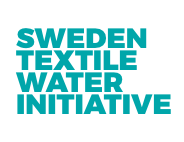Objective of Sweden Textile Water Initiative Projects
Sweden Textile Water Initiative Projects is a public-private partnership between Sida (Swedish International Development Cooperation Agency), SIWI, Sweden Textile Water Initiative Brands and their suppliers and sub-suppliers. The vision of Sweden Textile Water Initiative Projects is to be the catalyst behind a shift towards sustainable production in major production hubs.
The objective of Sweden Textile Water Initiative Projects’ program for 2014-2017 is to build the environmental performance capacity of suppliers and sub-suppliers to Swedish brands in the area of sustainable water use for textile and leather manufacturing processes.
Outcomes
The overall objective of the project is to improve the efficiency of the water use in production processes by 120-160 textile and leather producers in major production hubs such as Bangladesh, China, Ethiopia, India and Turkey. The specific objectives are listed below.
- Reduce the environmental impact of factories and build capacity for the continued improvement of resource efficiency.
- Build institutional capacity for improved decision-making in industrial water control at national and provincial levels by means of management and risk assessment.
- Raise the issue of water in global processes aimed at the textile industry’s environmental impact.
- Create international benchmarks for sustainable water use.
- Contribute with knowledge of water use in the global textile sector.
CLEAN WATER AND SANITATION
- 3,350,000 cubic meters of water is saved annually = One day’s requirement for 67 million people or one year’s requirement for 183,000 people
- 6% reduction of the total water use
- 7.3% reduction in water per kg of textiles
RESPONSIBLE CONSUMPTION AND PRODUCTION
- Total chemical reduction is 5.2 million kg (3.37% of the total use of chemicals)
- Total reduction per kg-production is 294 grams/kg (9.55%)
- 68% of factories with a resource monitoring system installed and in use
- 77% improvement in compliance with legislation
DECENT WORK AND ECONOMIC GROWTH
- 15,930 workers have been trained in 13 workshops
- 176 leading decision-makers have been trained
- SEK 162.9 million invested by factories with 20-month repayment period (240% ROI in 3 years)
- SEK 88.9 million saved by factories in operating costs
- 831% of private capital mobilized for public investments (Sida)
Find out more at http://stwi.se/about/


